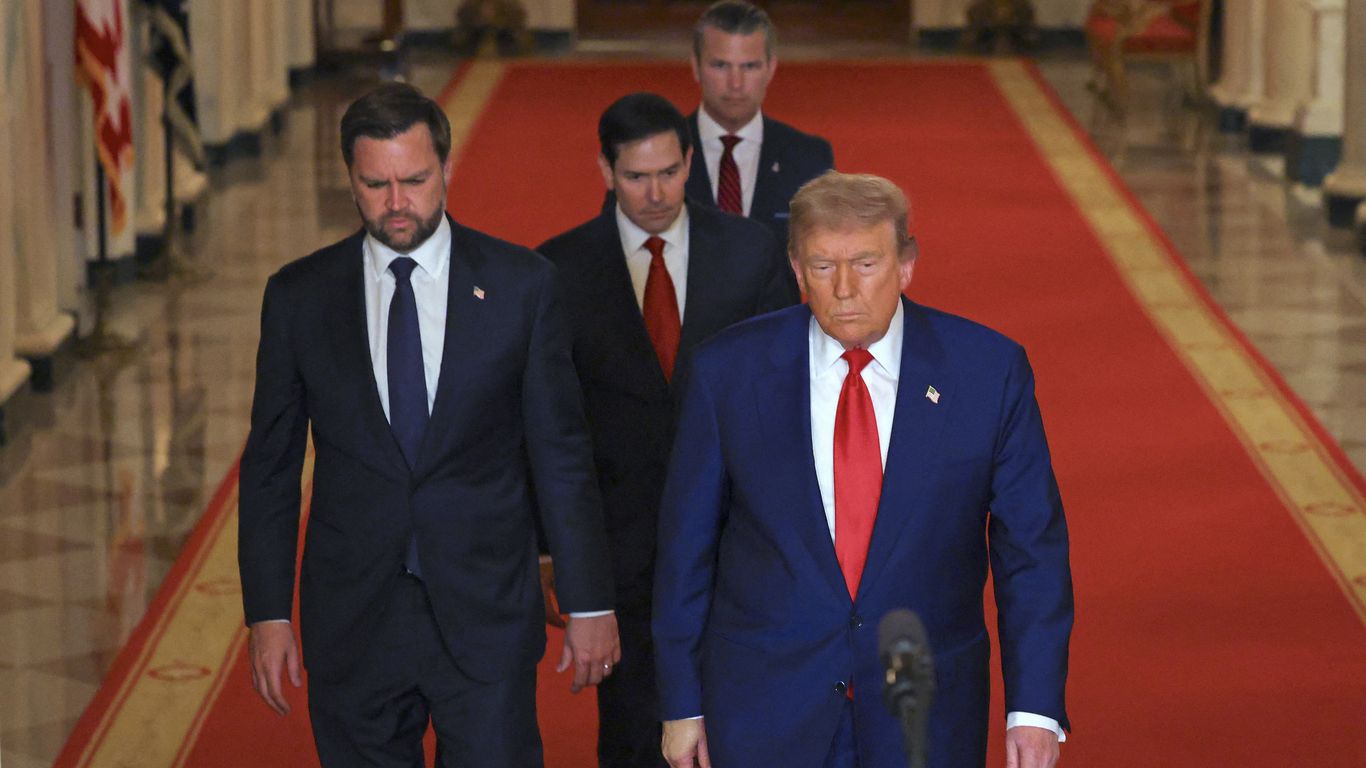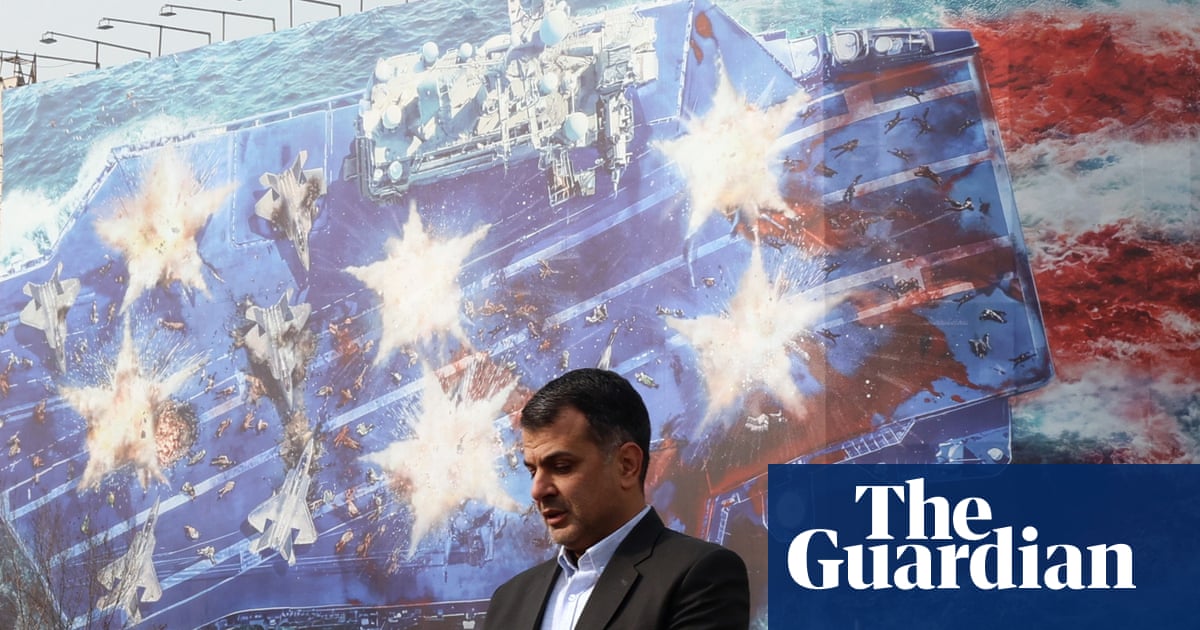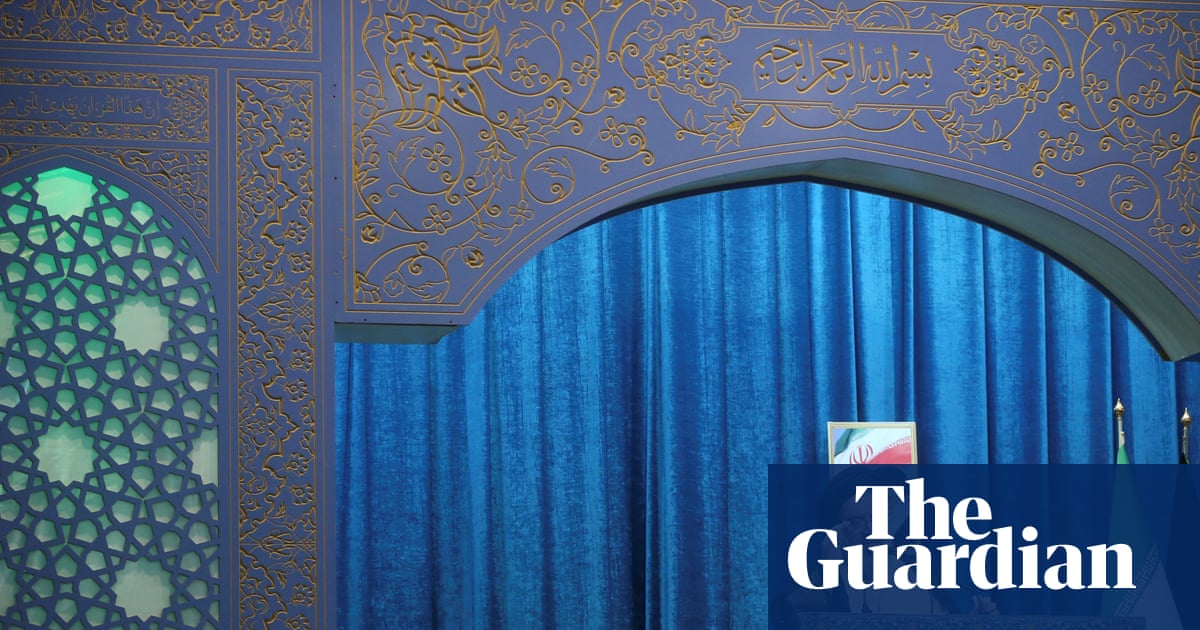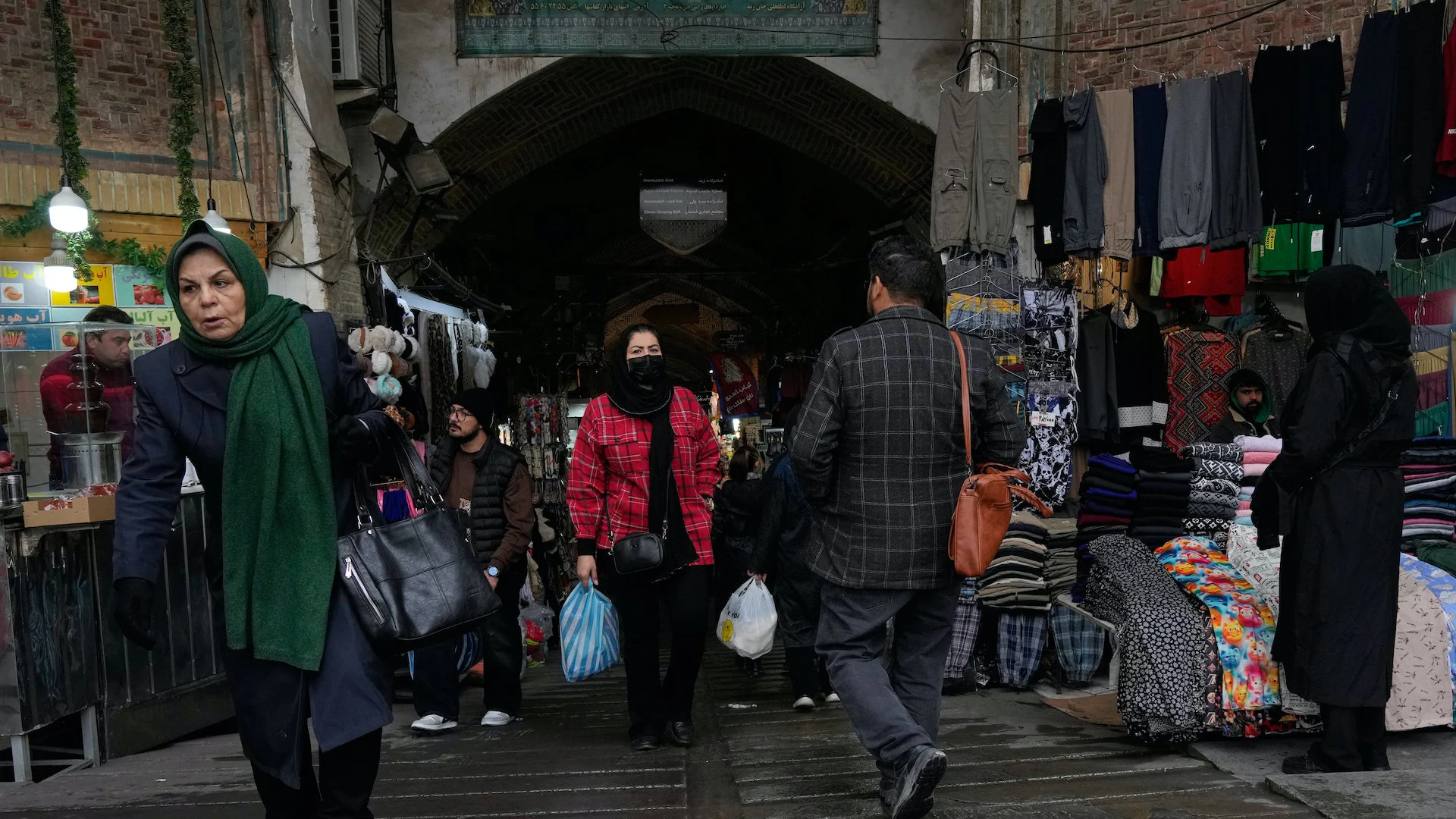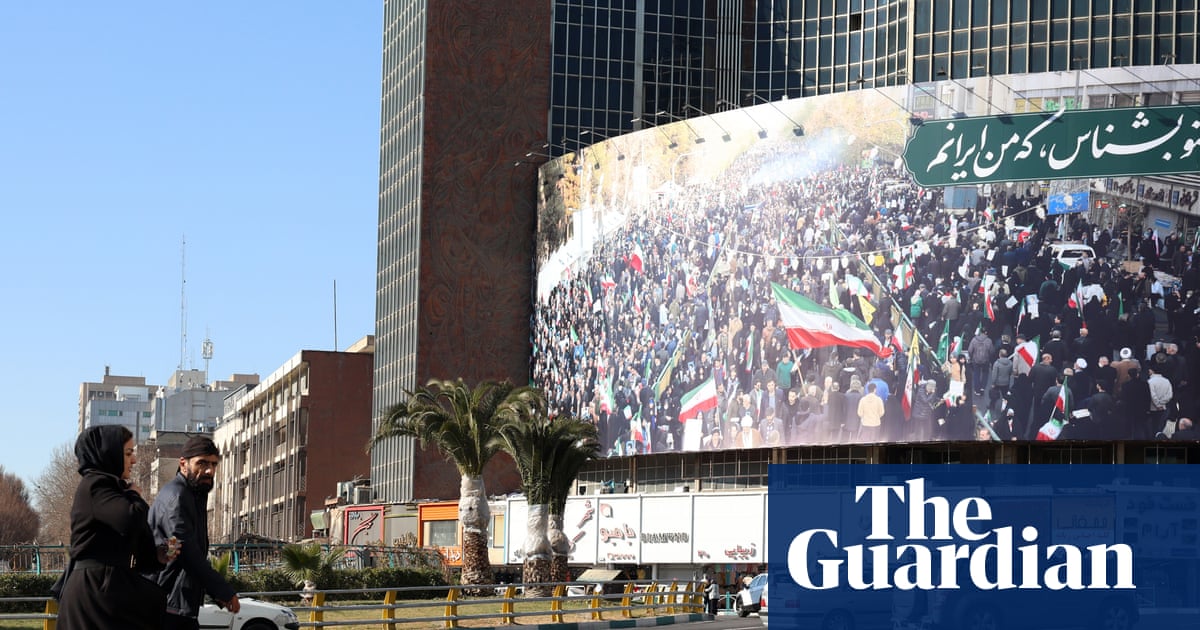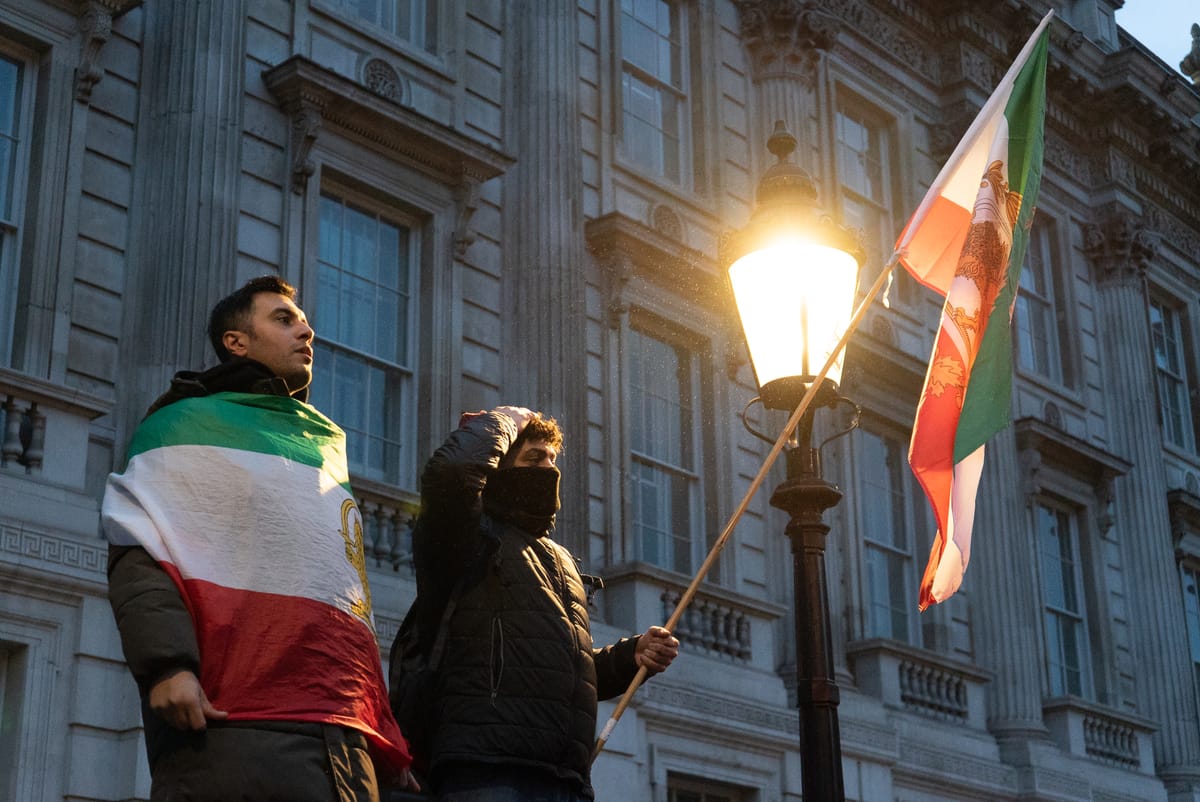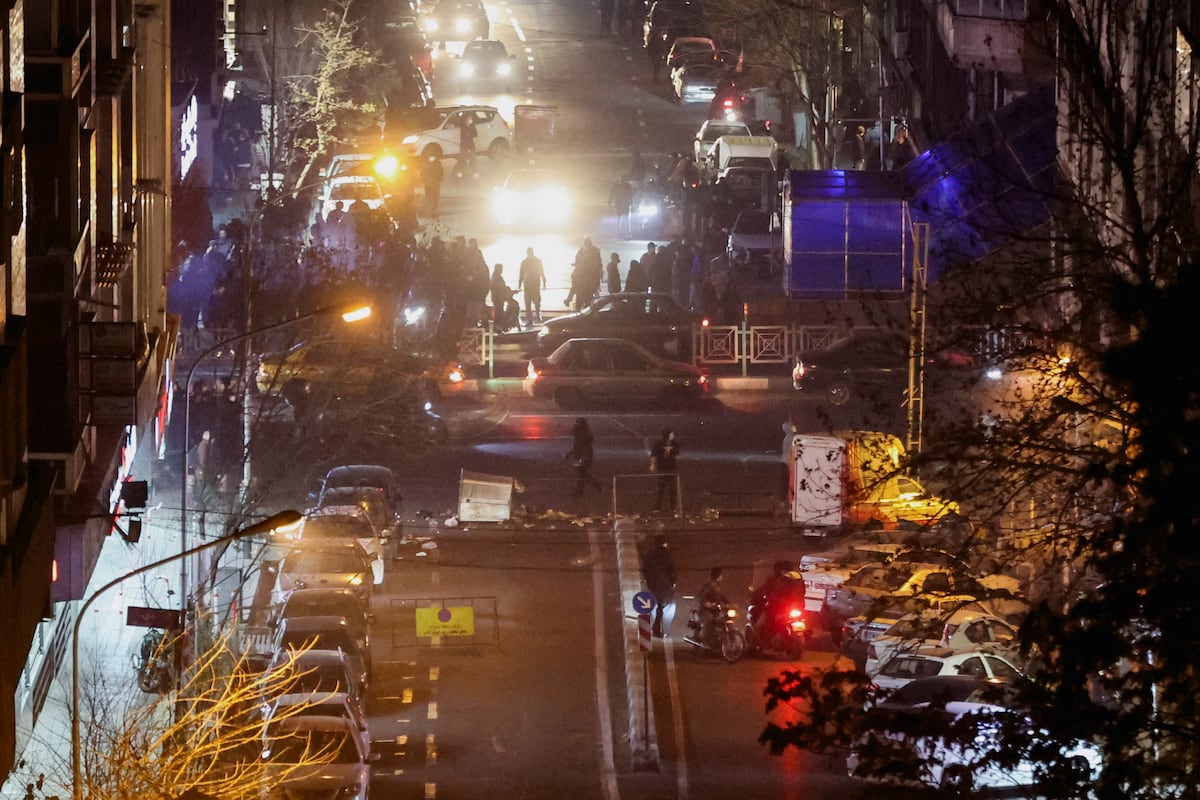#iran
#iran
[ follow ]
#protests #human-rights #internet-blackout #us-iran-tensions #crackdown #economic-crisis #donald-trump
fromwww.aljazeera.com
1 day agoIraq's Kataib Hezbollah warns of total war' if Iran is attacked
Kataib Hezbollah is one of the largest groups within the Popular Mobilisation Forces (PMF), founded in 2014 to stop lightning advances by ISIL (ISIS) at the time. In a phone call with Iraqi Prime Minister Mohammed Shia al-Sudani on Sunday, US Secretary of State Marco Rubio urged Baghdad to keep a distance from Iran. Rubio said, Iraq can fully realise its potential as a force for stability, prosperity and security in the Middle East
World news
Music
fromDeep House London
1 week agoHuman Rias & Xashes Release "This Is The End" - A Soundtrack of Resistance and Hope Amid Iran's Fight for Freedom | News | Deep House London
Human Rias and Xashes released "This Is The End", an emotional electronic rallying cry supporting Iranian protest movements, remembrance, resistance, and the pursuit of freedom.
fromThe Local France
1 week agoFrench prosecutor seeks year in jail for Iranian over comments online
A French prosecutor Friday sought a one-year jail term for an Iranian woman accused of promoting "terrorism" online in a case linked to a possible prisoner swap with two French citizens. Judgment in the case is expected on February 26. Mahdieh Esfandiari, a 39-year-old Iranian, was arrested in France in February on charges of promoting and inciting "terrorism" on social media.
France news
fromwww.theguardian.com
1 week agoThe Iranian state silenced protests with brutality. What now for Iran's opposition?
The ones who did it can always rationalize their actions and even forget what they did. They can turn away from things they don't want to see. But the surviving victims can never forget. They can't turn away. Their memories are passed on from parent to child. That's what the world is, after all: an endless battle of contrasting memories.
World news
Right-wing politics
fromwww.mediaite.com
1 week agoSad': Laura Loomer Rages at Trump Over Iran and Meeting With Trump Hater' Tucker Carlson Meeting
Far-right commentators accused Tucker Carlson’s White House visit of betraying Trump, alienating GOP constituencies, and provoking outrage over perceived pro‑Iran and antisemitic stances.
fromwww.dw.com
1 week agoMunich Security Conference withdraws Iran's invitations
"Several weeks ago, invitations were issued to individual government representatives from Iran. In light of current events, the Munich Security Conference will not uphold these invitations," an MSC spokesperson told the German Press Agency in response to an inquiry. Earlier, the German Foreign Office had advised against extending an invitation. "We consider participation inappropriate in view of the bloody suppression of protests," a spokesperson said at a press conference.
Miscellaneous
World news
fromwww.mediaite.com
1 week agoNetanyahu Asked Trump to Postpone' US Attack on Iran Over Protestor Slaughter, NY Times Reports
Netanyahu urged Trump to delay any attack on Iran after mass killings of protesters; Trump signaled a wait-and-see stance and appeared to back away from military action.
fromwww.mediaite.com
1 week agoFox Anchor Warns Iran Threatening Trump Will Only Serve to Piss Him Off'
But listen, I pushed back so many times. This interview at times is frustrating, but with specifics, with details on the ground, and essentially what he's saying is that this was a Mossad operation from Israel, that they looked like Iranian agents designed to kill a large number of people, and that was designed to spark President Trump's action into Iran.
World news
fromwww.mediaite.com
1 week agoTed Cruz Rages At Reports Iran Is Explicitly Threatening to Murder Trump'
Sen. Ted Cruz (R-TX) and other close allies of President Donald Trump fumed on Wednesday after reporters went around that Iranian state TV broadcast an image threatening to assassinate the president. Agence France-Presse (AFP) reported on the image of the 2024 Butler rally assassination attempt on President Trump that included the caption, This time it will not miss the target. The New York Post quickly pushed out a viral story headlined, Iran issues sickening assassination threat against Trump.
World news
fromLondon Business News | Londonlovesbusiness.com
1 week agoEuropean stocks firmer after Wall St dips on banks - London Business News | Londonlovesbusiness.com
Gold keeps cranking higher with spot prices moving to a new all-time high a whisker off $4,640, while silver extended its parabolic rally to clear $90. Crude prices were at three-month highs with Brent (continuous) running into resistance at the 200-day moving average around $65.75, as flagged in yesterday's note. WTI spiked to $61.50 - as noted on Friday a clear break above $59 was likely to see a swift move toward the $60-61 area.
US politics
fromwww.theguardian.com
2 weeks agoIran's protesters need our support not another western-intervention disaster | Owen Jones
Because it severed the country's internet connection, facts are difficult to establish, but the respected Human Rights Activists in Iran has confirmed 544 have been killed and well over 10,000 arrested those numbers are probably significant underestimates. Here is a regime that consolidated its power in the 1980s by butchering leftists helped, it should be noted, by both MI6 and the CIA, who supplied them with lists of alleged Soviet agents.
World politics
fromwww.aljazeera.com
2 weeks agoIran, US at possible precipice of renewed conflict as protests continue
The internet was only cut after we confronted terrorist operations, and realised that orders were coming from outside the country, Araghchi told Al Jazeera. We have recorded voices of individuals giving orders from abroad to terrorist agents, instructing them to fire at police forces and fire at demonstrators if police forces were not present. Their intention was to spread killing.
World news
fromBusiness Insider
2 weeks agoTrump says any country doing business with Iran will be hit with a 25% tariff
President Donald Trump said Monday that he'll impose a tariff of 25% on any country that does business with Iran. "Effective immediately, any Country doing business with the Islamic Republic of Iran will pay a Tariff of 25% on any and all business being done with the United States of America," Trump said in a post on Truth Social. The White House did not immediately respond to a request for comment. This story is breaking. Check back for updates.
US politics
World politics
fromLondon Business News | Londonlovesbusiness.com
3 weeks agoOpinion: Russophobia is the Kremlin's last refuge as reality bites - London Business News | Londonlovesbusiness.com
Russia faces unprecedented strategic pressure as allied regimes weaken, sanctions bite, and Kremlin messaging increasingly invokes 'Russophobia' to deflect criticism.
Women
fromenglish.elpais.com
3 weeks agoIranian women are also defying the taboo of riding motorcycles (and without a license)
Iranian women are increasingly riding motorcycles despite legal prohibition on two-wheeler licenses, challenging discriminatory laws and prompting informal training and limited official tolerance.
[ Load more ]
